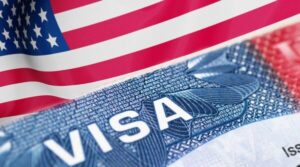Chinese brokers said they expected the resumption of regular trade with North Korea immediately after Monday, after the North Korean train was withdrawn to the Chinese border city on Sunday at the first intersection since the anti-coronical border lock began in 2020.
“My business partner in North Korea told me on Friday that the land border would be reopened by cargo transportation on January 17,” a Chinese commodity trader in the Dandong border city told Reuters.
“On Saturday the entire export-import community here has heard about this and people have started taking the carriage to move their cargo,” he said.
North Korea has not officially reported the Covid-19 case since the pandemic began at the beginning of 2020, and had imposed strict anti-virus steps, including the closure of the border and domestic travel sidewalk.
Other Chinese traders said he could arrange cargo to be loaded on the train in Dandong scheduled to cross into North Korea on Monday.
On Sunday he posted three photos of transportation cars taken at the train station on social media, and said that the first cargo batch to resume the rail relationship between Dandong and North Korea was being loaded.
Both traders refused to be named, citing the sensitivity of the problem.
China has not officially announced the opening of the border border. Previous reports of improving nearby borders and logistics were not realized.
The Chinese Foreign Ministry did not immediately respond to the request on Sunday to confirm the reopening of the border.
Quoting some of the unnamed sources, the South Korean Yonhap news agency on Sunday reported the arrival of what he said the North Korean goods train in Dandong, said it marked the reopening of the formal of the North Korean land border with China.
It is not clear whether the train brought cargo to China, but it would likely return to North Korea on Monday with many “emergency materials”, sources told Yonhap, without describing.
The Kyodo Japan news agency also reported the arrival of the train, citing information sources.
While Chinese data shows that some limited trading continues, most of the delivery seems to use the port of North Korea, not a train on the border of its land.
Officials in Seoul said the end of last year they overseen carefully to the commencement of the cross-border train traffic as a signal that restrictions might loosen.
After nearly two years of closing the border, some humanitarian assistance dripped to North Korea, although the shipping of the main inventory included food remained blocked, according to the UN organization.
Some shipping nutrients and medical assistance have entered the country after three months of quarantine at the Nampo Sea Port, but there is no large delivery confirmation transported by train.






